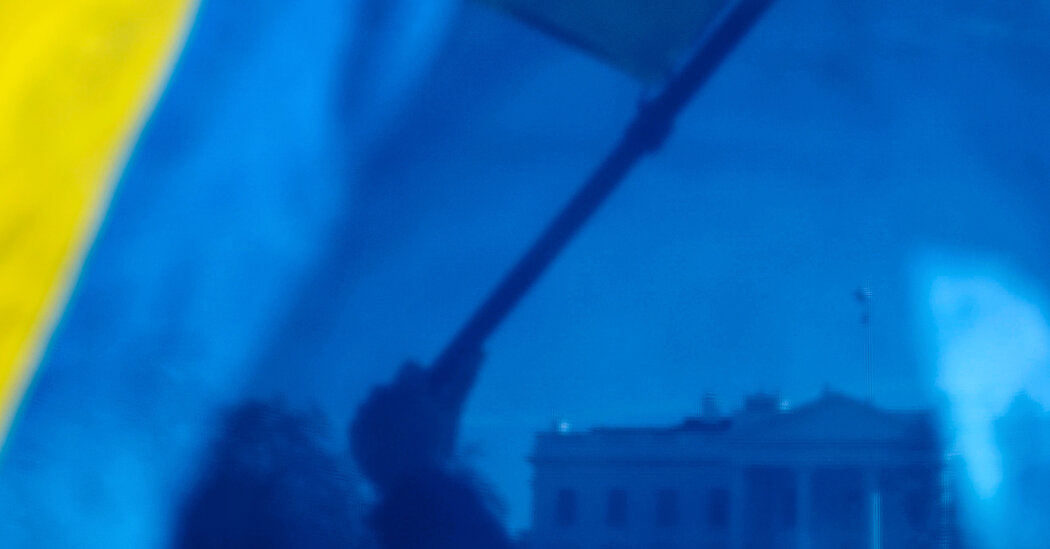In the cause of freedom, the world has found in Volodymyr Zelensky its most Churchillian figure in decades. “I need ammunition, not a ride” — the Ukrainian president’s spirited reply to an American offer to spirit him to safety — is a line for the ages. His inspiring appearances on the streets of Kyiv recall Britain’s wartime prime minister during the Blitz, personifying his nation’s determination to resist.
Now it’s up to President Biden to play Franklin to Zelensky’s Winston. That begins by explaining to the American public that losing Ukraine would be a global, not local, calamity.
I’m writing this before Biden delivers the State of the Union address on Tuesday night, so I hope he will say something along these lines by the time you read this. But the main point is this: Vladimir Putin’s goal in Ukraine isn’t merely to seize territory for Russia, even if he wouldn’t mind swallowing an additional chunk of it. He wants to crush its spirit.
The threat a free Ukraine poses to his regime isn’t, and never will be, military. It’s political. It’s the thought that if democracy, the rule of law and civil rights can take root in Kyiv, they might soon take root in Moscow, too, bringing an end to his rule and accountability for his crimes. A Ukraine that’s a thriving member of the European Union would pose an even graver threat to Putin’s grip than would Ukrainian membership in NATO.
But at stake in this war is more than the fate of Ukraine. Putin is a creature of the Soviet system and personifies its values: contempt for truth, contempt for the individual, contempt for international norms, the unprincipled pursuit of unbridled power.
These values have no cultural or geographic limit. If Putin can impose them in Ukraine, just as China has imposed them in Hong Kong, then we will be thrust into a world in which, in the language of Thucydides, “the strong do what they can and the weak suffer what they must.”
For America, such a world would be a never-ending test of strength at a moment when we are not particularly strong. China would challenge us — much sooner than we think — over Taiwan. Iran would use sanctions relief from any new nuclear deal to further arm its proxies in Iraq, Syria, Lebanon, Gaza and Yemen, stirring chaos that will not spare the United States. A victorious Russia would turn its sights on another target and then another. Some European states, like Poland, might rise to the challenge, but others, like Hungary, would find their inner Quisling.
Where will the Biden presidency be then? The administration acquitted itself well in the weeks leading up to the invasion. But if Kyiv falls, it will be the second geopolitical catastrophe the Biden administration will have sustained in barely six months. Republicans will say that the president has consistently been a day late and a dollar short and that this would never have happened on their watch. A growing number of Americans will believe them.
But the courage of the Ukrainian people — matched by the remarkable ineptitude of the Russian military in its campaign so far — has given the administration an opportunity to help Ukraine, the world and itself.
How?
It can stop telegraphing to Putin what we are not going to do. Giving Putin every reason to believe that the United States is more afraid of him than he is of us provides him with additional incentives to ratchet up tensions and behave worse.
It can do everything short of war to prevent the fall of Kyiv, including by establishing a humanitarian air corridor to keep the city from being starved and frozen into surrender. Like Leningrad in World War II or Berlin in 1948, the Ukrainian capital has become a potent symbol of defiance. Every day it doesn’t fall, Putin loses the perception of his invincibility.
It can persuade Congress to fund covert efforts to support a long-term insurgency throughout Ukraine. The thought of thousands of sniper rifles and antitank missiles in the hands of Ukrainian partisans should keep Russian commanders awake at night.
It can push for a declaration with the E.U. that Russia’s energy sector will face comprehensive sanctions if Zelensky is killed, harmed or captured by Russian forces. You don’t need to subscribe to the great man theory of history to recognize that right now, Ukraine’s hopes, and ours, rest on his life.
Long before Pearl Harbor, Roosevelt understood that America could not be indifferent to Britain’s fate, even with the odds so overwhelmingly against it. At a meeting in Britain in January 1941, his closest adviser, Harry Hopkins, used the words of the Book of Ruth to convey to Churchill the feelings the two Americans shared:
“Whither thou goest, I will go; and where thou lodgest, I will lodge; thy people shall be my people, and thy God my God.” Then he added, “Even to the end.”
Biden ought to send Zelensky the same message.
The Times is committed to publishing a diversity of letters to the editor. We’d like to hear what you think about this or any of our articles. Here are some tips. And here’s our email: letters@nytimes.com.
Follow The New York Times Opinion section on Facebook, Twitter (@NYTopinion) and Instagram.


























